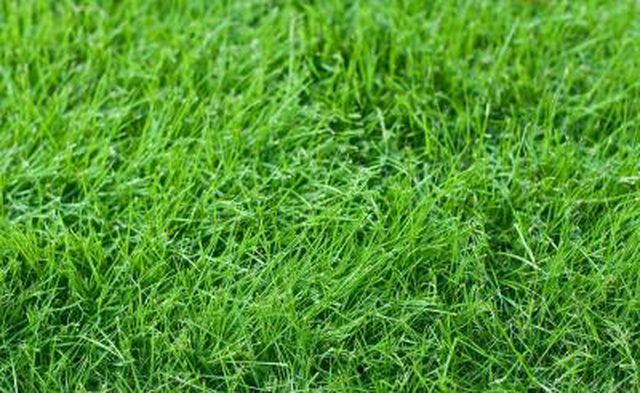Bulbs
Flower Basics
Flower Beds & Specialty Gardens
Flower Garden
Garden Furniture
Garden Gnomes
Garden Seeds
Garden Sheds
Garden Statues
Garden Tools & Supplies
Gardening Basics
Green & Organic
Groundcovers & Vines
Growing Annuals
Growing Basil
Growing Beans
Growing Berries
Growing Blueberries
Growing Cactus
Growing Corn
Growing Cotton
Growing Edibles
Growing Flowers
Growing Garlic
Growing Grapes
Growing Grass
Growing Herbs
Growing Jasmine
Growing Mint
Growing Mushrooms
Orchids
Growing Peanuts
Growing Perennials
Growing Plants
Growing Rosemary
Growing Roses
Growing Strawberries
Growing Sunflowers
Growing Thyme
Growing Tomatoes
Growing Tulips
Growing Vegetables
Herb Basics
Herb Garden
Indoor Growing
Landscaping Basics
Landscaping Patios
Landscaping Plants
Landscaping Shrubs
Landscaping Trees
Landscaping Walks & Pathways
Lawn Basics
Lawn Maintenance
Lawn Mowers
Lawn Ornaments
Lawn Planting
Lawn Tools
Outdoor Growing
Overall Landscape Planning
Pests, Weeds & Problems
Plant Basics
Rock Garden
Rose Garden
Shrubs
Soil
Specialty Gardens
Trees
Vegetable Garden
Yard Maintenance
Bermuda vs. Fescue Grass
Bermuda vs. Fescue Grass. Both Bermuda grass and fescue can be used for a lawn, but they differ substantially in their appearance and their growth habits. Fescues have relatively fine leaves and perform well in areas where winters are cold. Bermuda grass has a coarser texture, is better suited to warm climates, and has an invasive growth habit that...

Both Bermuda grass and fescue can be used for a lawn, but they differ substantially in their appearance and their growth habits. Fescues have relatively fine leaves and perform well in areas where winters are cold. Bermuda grass has a coarser texture, is better suited to warm climates, and has an invasive growth habit that can get out of control if not managed properly.
Bermuda Grass Turf
Bermuda grass (Cynodon spp.), a warm-season grass, grows in the area that roughly covers U.S. Department of Agriculture plant hardiness zones 7 through 10. It's a fast-growing, medium-textured grass that's widely used in lawns in the southern U.S. Bermuda grass spreads actively, and it readily fills in bare spots in the lawn. It's also heat-, disease- and drought-tolerant, and it forms a lawn that is dense and resistant to erosion. Bermuda grass does not grow well in shade and it goes dormant and turns brown after a frost. Bermuda grass should be mowed to between 1 and 1 1/2 inches.
Fescue Turf
Fine fescue (Festuca spp.) and tall fescue (Festuca arundinacea) are cool-season turf grasses that grow as perennial grasses in USDA zones 2 through 7. They are fine-textured, dark green grasses that do well in cooler climates. Both types of fescue are drought-tolerant, and fine fescue also tolerates shade better than many other cool-season turf grasses. Tall fescue handles heat well, but it does not do as well in shade as fine fescue. Fescues should be mowed to 2 to 3 inches high. Fescues are susceptible to fungal diseases, and they are most vulnerable when they are fertilized with too much nitrogen.
Bermuda Grass Invasiveness
The downside of Bermuda grass' tendency to spread is that it is invasive if it's not contained, a problem so significant that Bermuda grass is considered an invasive weed in some parts of the country. Bermuda grass spreads through both underground rhizomes and above-ground stolons, and turf that's not contained by edging will likely spread into garden beds and paved areas. The edging needs to extend at least 6 inches beneath the surface of the soil to prevent the spread of rhizomes. Bermuda grass can be a particular problem when it invades lawns made up of other grasses, such as fescues, because it's difficult to eradicate the Bermuda grass without damaging the other grasses.
Controlling Bermuda Grass in Fescue Turf
Prevention is the best ways to keep your fescue lawn free of Bermuda grass. Raising the mowing height of the fescue can help by increasing the strength and density of the grass and also by shading out any low-growing Bermuda grass that has made its way into the lawn. Water deeply, so the soil is moist to a depth of 6 inches, but only water twice a week -- watering more frequently and shallowly will benefit the Bermuda grass more than the fescue. Check any soil or compost you introduce into your lawn for Bermuda grass rhizomes and stolons to avoid contaminating the lawn, and keep garden beds free of Bermuda grass so they don't provide an entry point into your lawn.